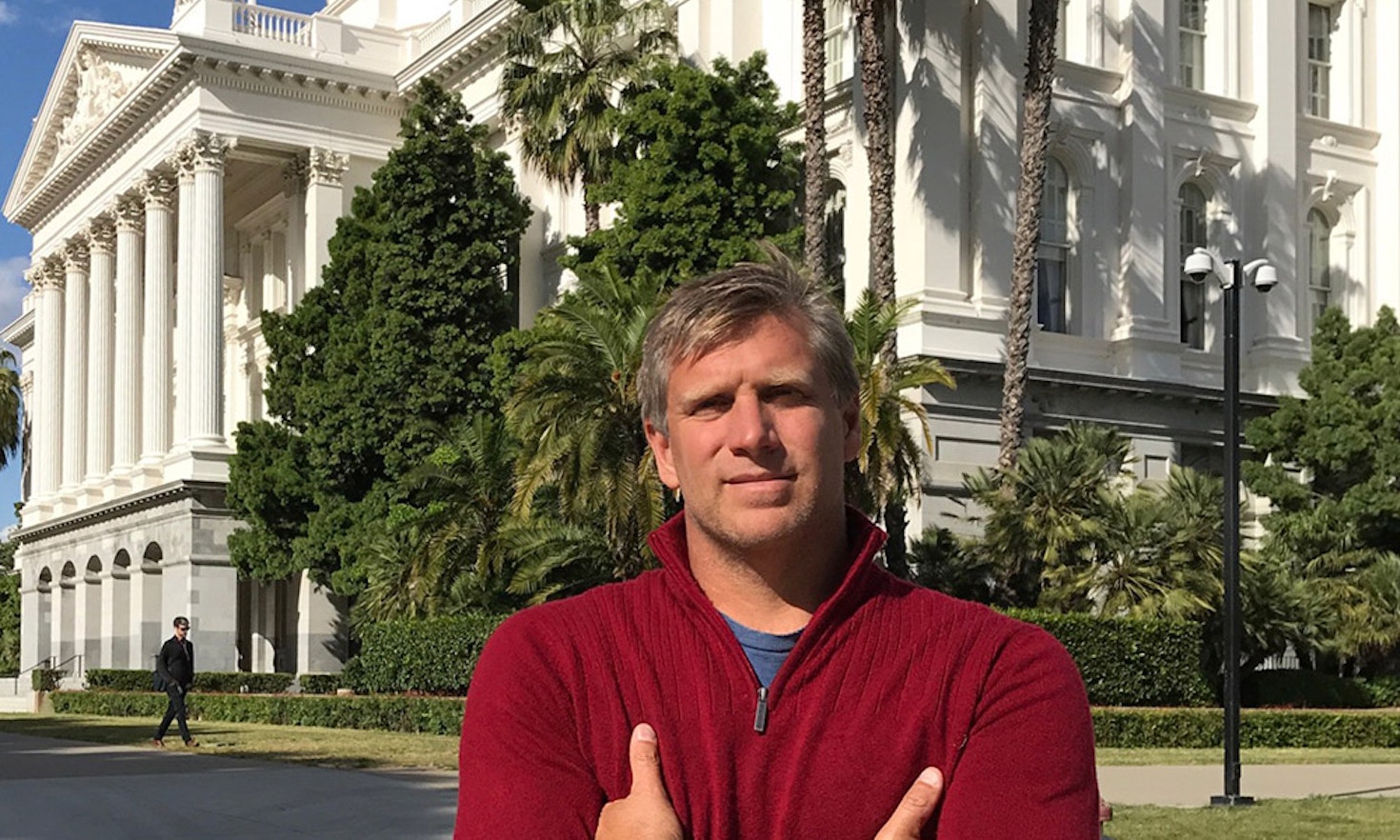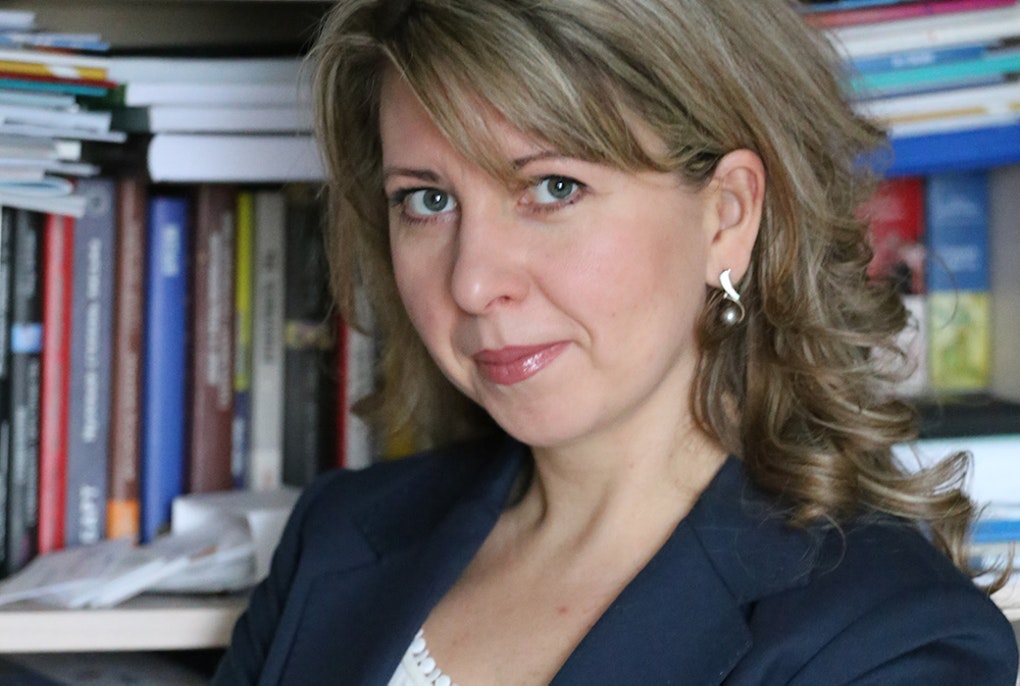
The Covid-19 Whistleblowers
 Cristina Fernández González
Cristina Fernández González
Zoltan Istvan is a transhumanist known for quite a few interesting things. As a journalist for the National Geographic Channel, he invented a new kind of sport: volcano surfing. In the US election campaign of 2016, the Columbia University graduate ran for president and was the top candidate for the Transhumanist Party he founded to raise public awareness about transhumanism. Now that humankind is threatened by a virus, this international movement is becoming particularly interesting. On 25 September Istvan will be a speaker at the Futurological Congress organised by Eurac Research’s Center for Advanced Studies and Festival Transart. Read on to discover the journey of a man who promotes nothing less than human immortality.
Zoltan Istvan: It is true that most people have little understanding of transhumanism which is usually associated with science fiction films or evil villains with cyborg parts. In California, where I live, it’s different. In Silicon Valley I’d say 90 percent of the people know transhumanism as an international movement that seeks to merge human beings with machines in order to overcome the biological limits of man, disease and ultimately death through technology and science. I was working as a journalist for National Geographic and had a very close call with a landmine in Vietnam and coming so close to losing my life got me thinking. That is when I decided to join in and advocate it. I like to draw a comparison with the environmental movement. Only a few decades ago, recycling was a foreign word and the general public were not yet aware of the effects of deforestation on our environment and climate. Today every child knows. It will be similar with transhumanism. Today we still have to inform people about it. Tomorrow, that we live with transhumanist technology will be taken for granted.
Istvan: Well, while you are right to say that a limited life span does add value, it doesn’t mean that other variants don’t. In fact, an increasing consciousness will add anHumanity has achieved amazing things, considering that we spent most of our existence as cave dwellers. However, a virus is paralysing our planet right now. How does a transhumanist assess this situation? enormous amount of value. Not only we will never get bored but there will always be new meaning to discover out there. I am sure people will always have the chance to die but even death is going to be eradicated completely at some point in the future. Take Quantum Archeology for example, the idea of a 3D bioprint which brings entire humans back to life. Transhumanist scientists are working on this type of technological resurrection right now.
Istvan: In a way it was a shock to the world that the coronavirus overcame us so quickly. You have to understand, we have probably lost at least a year of medical research because of it. Each year that research progresses, we are able to save that many more lives. I have estimated that if research is halted now for about three years, even if that’s only 50 percent, we could lose 250 million lives in the next 20 years as a direct result. Therefore, I have always thought of the Swedish model as the better one. The fact that we lose a million lives now is terrible, but we are going to lose dramatically more in the next years just because we decided to shut down the world. We need to protect the elderly and we need to protect the immunocompromised people, but I think the rest of the world has probably suffered more damage in economic terms, which will affect things like hunger or housing. Or there’s also the people who aren’t getting flu vaccinations or who are dying of heart disease or cancer because they can’t see a doctor.
Istvan: I would like to see more activism. We have thousands upon thousands of great scientists working on life extension science, but the number of advocates that have any international recognition is less than ten. What transhumanism needs is lawyers who practice transhumanism, we need journalists, artists, architects that build houses that incorporate AI. When you try to start a social movement, it doesn’t just work through science and academics. It must spread to culture, you must see it on the freeway, buildings and hear about it on the news.
Istvan: Artificial intelligence is probably the biggest gamechanger in history. Whoever controls it, will kind of control the world at some point in the future. Whoever takes transhumanism to the next level will have incredible advantages in the geopolitical landscape. It is therefore important to introduce the transhumanist concept into the political debate. Transhumanist technology will spread throughout society and whether you are critical or sympathetic, it’s essential to know about it.
Istvan: I do not believe that we should try to limit the possibilities of technology just because we see that some people are using it wrongly. We must allow technology to serve humanity and to be implemented into society and, at the same time, make sure that it is not misused for warlike or manipulative purposes. When, for example, a few years ago an airline pilot committed suicide with 150 people on board, we thought about headsets or brain implants for certain professions. These implants could register violent actions – and perhaps even unpleasant thoughts – and keep them in check. At the same time, we are coming up against questions of civil liberties. How far do we allow technology into our lives without conflicting with our individual freedom? This is something society has to grapple with.
Istvan: The most important achievements at present are probably made in the field of prosthetics. The FDA, for example, has approved the bionic eye, which enables even severely visually impaired people to see again. There are deaf people who, thanks to the latest technology, can hear sounds in a frequency that is otherwise only perceptible to animals. It is even more important for people in war zones who have lost limbs. We have robotic arms that can be connected to the neural system in such a way that the people wearing them are even able to play the piano. Within the next 5 to 10 years, exoskeletons could be so advanced that paraplegic people will be able to walk past us. Cyborg Olympics will probably become the dominant arena for the most amazing talents. You’ll see different types of sporting events were human beings run faster than you would ever run naturally.
Istvan: I couldn’t agree more that the coronavirus has shown how much inequality has increased It is up to governments to intervene and take action and use technology to make it better. Despite my libertarian background, I am a strong supporter of the universal basic income, which should enable everyone to afford their own health care, housing and technology. I am truly concerned that the Mark Zuckerbergs or Bill Gates of this world may one day, with the help of transhumanist technology, become like godlike beings, while the rest of us are left on the sidelines. Transhumanism as a social movement is committed to create technology for everyone.
Zoltan Istvan is widely recognized for spearheading the modern-day transhumanist movement, which advocates for using radical science to improve and evolve the human being. In his 20s, Zoltan started as a journalist at National Geographic Channel. Later, he became a successful real estate developer, owning many properties including vineyard entities in Argentina, California’s Napa Valley, and soon Bordeaux, France. Zoltan was also a director at a major wildlife nonprofit, WildAid. In his 30s, Zoltan began writing a science fiction novel The Transhumanist Wager. He was the 2016 presidential candidate for the Transhumanist Party and toured the country in the Immortality Bus, which he used to deliver the original Transhumanist Bill of Rights to the US Capitol. This journey was chronicled in the award winning feature documentary IMMORTALITY OR BUST. Zoltan was also a party endorsed 2018 libertarian California Governor candidate. Zoltan has spoken at the World Bank, the World Economic Forum, Microsoft, Harvard and was the opening keynote at the Financial Times Camp Alphaville. He is a graduate of Columbia University, and lives in San Francisco.

This content is licensed under a Creative Commons Attribution 4.0 International license.

 Cristina Fernández González
Cristina Fernández González
 Giulia Isetti
Giulia Isetti
 Sonia Gantioler
Sonia Gantioler